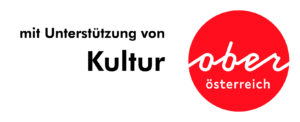Tobias Moretti initially studied music at the University of Music and Performing Arts in Vienna. After completing his theatre training at the Otto Falckenberg Hochschule in Munich, he joined Frank Baumbauer at the Residenztheater in Munich during his first engagement at the Staatstheater Hannover. He has been a member of the Munich Kammerspiele ensemble since 1986, where he has enjoyed success in various title roles, including in “Troilus and Cressida”, Faßbinder’s “Katzelmacher” and Achternbusch’s “Der Frosch”. After his first guest appearances in Vienna, he made his debut at the Vienna Burgtheater in 1995 in Chekhov’s “The Marriage Proposal”.
Since the early 90s, he has been increasingly present in film and television; after a series outing, feature films such as “Workaholic” (director: S.v. Wietersheim), “Krambambuli” (X. Schwarzenberger), “Todfeinde” (O. Hirschbiegel), “Schwabenkinder” (J. Baier), “Käthchens Traum” (J. Flimm) or “Jud Sü. – Film without conscience” (O. Röhler). There were also television plays such as “The Return of the Dancing Master” (U. Egger), his portrayal of Hitler in H. Breloer’s docu-drama “Speer und Er” and “Das jüngste Gericht” (director: U. Egger, with Christoph Waltz). Productions in recent years include “Das Zeugenhaus” (M. Geschonneck), “Mordkommission Berlin Eins” (M. Kren), “Im Namen meines Sohnes” (D. Lukacevic), “Maximilian” (A. Prochaska), “Bad Banks 1/2” (C. Schwochow/C. Zübert), “Achterbahn” (W. Murnberger), “Im Abgrund” (S. Bühling), “Im Netz der Camorra” (A. Prochaska), “The Net – Prometheus” (A. and D. Prochaska), “Euer Ehren” (D. Nawrath) and “Der Gejagte” (R. Ostermann). The most recent cinema productions were “Das finstere Tal” (A. Prochaska), “Hirngespinster” (C. Bach), “Das ewige Leben” and “Luis Trenker” (W. Murnberger), “Die Hölle” (S. Ruzowitzky), “Mackie Messer – Brechts Dreigroschenfilm” (J. Lang), “Gipsy Queen” (H. Tabak), “A hidden life” (T. Mallick), “Deutschstunde” (C. Schwochow), “Louis van Beethoven” (N. Stein) and “Das Haus” (R. Ostermann).
In addition to his film work, Tobias Moretti continued to play theatre roles at various theatres, including the title role in Botho Strauß’ world premiere “Pancomedia” at Schauspielhaus Bochum (director: M. Hartmann) in 2001, in “Jedermann” Teufel/Guter Gesell (2002-2005, director: C. Stückl) at the Salzburg Festival and the title role in M. Kusej’s acclaimed production of Grillparzer’s “König Ottokar” at the Salzburg Festival in 2005 and at the Vienna Burgtheater until 2009. From 2009-2012, Moretti appeared in “Faust” (director: M. Hartmann) at the Burgtheater. 2011-2014 he played Friedrich Hofreiter in Schnitzler’s “Das weite Land” (director: M. Kusej) at the Bavarian State Theatre, 2012-2017 he was the “Grenzjäger” in “Weibsteufel” (M. Kusej), which was revived at the Burgtheater / Akademietheater in 2019. At the 2015 Aix-en-Provence Festival, he appeared as Bassa Selim in “Die Entführung aus dem Serail” (M. Kusej). In 2016, he was seen and heard at the Theater an der Wien in Brecht/Weill’s “Dreigroschenoper” as “Macheath” (music. cond.: J. Kalitzke, director: K. Warner). From 2017 until the anniversary year 2020, he was “Jedermann” at the Salzburg Festival (director: M. Sturminger). In 2018-2019, he played Desiré/Romeo in L. Perceval’s “Rosa oder die Barmherzige Erde” (after Dimitri Verhulst and W. Shakespeare) at the Burgtheater, and since February 2022 he has been “Garçin” in Sartre’s “Geschlossene Gesellschaft” (director: M. Kusej). He also staged Haydn’s “Il mondo della luna” at the Theater an der Wien in 2009 (conductor: N. Harnoncourt). He has previously worked with N. Harnoncourt on two Mozart productions, Mozart’s “Zaide” at the Salzburg Festspielhaus in 2005 and “La finta giardiniera” at the Zurich Opera House in 2006.
Moretti’s achievements have been honoured many times: Among others, he received the Bavarian Film Award (1995, 2014 for “Das finstere Tal” and “Hirngespinster”), the Silver Tulip (1997), the Bavarian Television Award (1999), the Grimme Award (2000, 2002), the German Film Award (2014, for “Das Finstere Tal”), the Bambi (2015, for “Das Zeugenhaus”), the Romy several times (most recently in 2021), the Grand Acting Award of the Diagonale in 2015 and the Austrian Film Award (for “Gipsy Queen”) in 2020. He was honoured with the Gertrud Eysoldt Ring of the German Academy of Performing Arts for “King Ottokar”. The Salzburg Festival awarded him the Festival Pin in 2020. In 2021 he received the European Cultural Award.

















